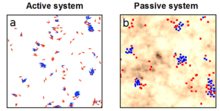New publication: Morphological diversification of geckos from Peninsular India
Mon, 2019-10-14 11:51Studying adaptive radiations, such as Darwin's finches from the Galápagos Islands, can give us key insights into generalities of ecomorphological diversification. This paper from the Karanth lab examines morphological diversification in Hemidactylus geckos from Peninsular India that occur in a wide range of microhabitats.










